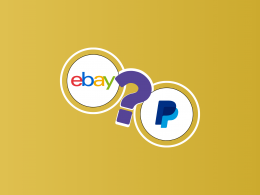Although Shopify is a popular e-commerce platform and CMS, Shopify accounting tools are fairly limited. To execute more complex tasks such as filing compliant tax returns, you will need an integrated e-commerce accountancy app.
What is the importance of accounting for e-commerce businesses? Aside from tending to your legal obligations, accounting allows you to track sales, expenses, profits, and tax liabilities to stay in control of your finances at every step.
What Accounting Tools Does Shopify Offer?
Shopify provides some reports and functions that may be beneficial, depending on the type of merchant account you have. For example, Shopify sends 1099 forms to e-commerce owners and the IRS, but only if you reach 200 transactions and $20,000 in sales. Otherwise, you will have to download your 1099 forms manually from the payments section–you’ll also need to double-check if any automatically issued documents match your tax return.
You can run sales reports across specific dates, but more in-depth analytical reports are only offered to stores on the Shopify Plan. Smaller or newer e-commerce stores have further restrictions, so you might only be able to see total sales, deductions, and net sales figures.
Another stumbling block to be aware of is that an accounting report from Shopify isn’t formatted or comprehensive enough to submit in lieu of a proper set of financial accounts and will only include those transactions that have been completed on-platform.
How Can I Integrate My E-commerce Shopify Store With Accounting Software?
If you’re exploring Shopify payments alternatives or need to get on top of your Shopify sales, consolidate data from all your platforms in one place, and produce precise, real-time reports to make business decisions or file your tax returns, Synder is your solution. The integration process is simple:
- Log into your Shopify store, and scroll down the menu to Apps.
- Search for Synder, and click install.
- Authorize the connection, and both your packages will sync.
You can configure the integration to select how you want to issue invoices, create new products and manage your inventory. For example, you might decide to update stock levels directly in your accounting app or manually do this through Shopify (although the first option is much faster!).
Learn more by reading How to start succesful Shopify store.
Tailoring Your Shopify Integration
There are custom options to sync the desired components of your Shopify orders with your accounting package, such as:
- Including pending sales or partially paid sales
- Choosing how your order numbers will be categorized–Shopify assigns a four-digit order number, but you can override that to slot it into any existing invoice systems.
- Select accounting codes for shipping item options
- Assigning sales to locations, which can be helpful if you need to file tax returns in different jurisdictions
You can always adjust your settings later and use the defaults for the time being if you have an urgent filing deadline.
What Are the Benefits of Integrating Shopify With My Accounting Software?
Online retailers can have thousands of transactions flowing through numerous sales channels every day. Integrating each platform helps you track seller fees, approve refunds, and update your stock levels–all from one dashboard, giving you confidence that your e-commerce stores are always up to date.
The advantages include:
- Automatically importing and syncing every sale and fee with your accounting system
- Reducing manual bookkeeping and data entry tasks
- Rolling out stock updates across all your channels simultaneously
- Producing accurate reports to analyze business performance
Shopify itself doesn’t provide many accounting tools, but once you integrate Shopify with your preferred accounting app, it will take care of the majority of your accounting needs.











.png)